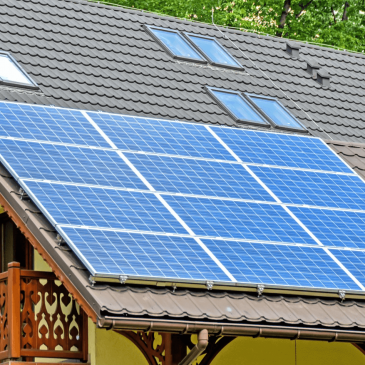What’s the Best Way to Pay for Residential Solar in 2023?
Going solar is cheaper than it’s ever been, but the cost can still be substantially more than what the average homeowner has in their savings. This is a common conundrum for so many households. On one hand, they want the benefits that solar provides, like saving money and access to consistent, reliable energy, but on the other hand is having the money to pay for their system to be installed.
Thankfully, there are several financing options available that can help homeowners reach the sweet spot where they get the solar systems they want at a price point that fits within their budgets. If you’re thinking about going solar, but aren’t sure you can afford it, then here are some of the best ways to finance your rooftop solar panels in the summer of 2023.
Cash-Out Refinance
Refinancing your mortgage with a cash-out refinance is a great option to pay for residential solar if you have plenty of equity in your home. But it’s an even better option if you can refinance at a rate that’s at least 1% lower than what you’re currently paying. Depending on the rate you get, you may even be able to get the money you need to have your solar system installed and enjoy a lower monthly payment too.
Even if you are forced to pay a slightly higher monthly mortgage payment, it can still be worth it because the money you save on your monthly energy bills may compensate for some or all of the extra amount. It is important to note, however, that to qualify for a cash-out refinance, you will need to meet all the same lender requirements that you did when applying for your original home loan and there will be additional closing costs to deal with.
Home Equity Line of Credit (HELOC)
If you have equity in your home, but the current interest rate is too high for you to take out a cash-out refinance, then a home equity line of credit (HELOC) can be an excellent option to pay for solar. A HELOC works like a credit card by providing you with the money you need to pay for your solar panels in full, but it allows you to pay the amount back in affordable monthly payments. And best of all, once you pay off your HELOC, the money will remain available to you should you need to access it for any other reason or purpose in the future.
To qualify for a home equity line of credit, most lenders will require you to have at least 15% equity in your home.
Personal Loans
If neither a cash-out refinance or home equity line of credit are suitable options for you, then a personal loan might be right for you. This type of loan will usually have a slightly higher interest rate than the previous two options, but it can still help you reach your goal of solar panel ownership via convenient and affordable monthly payments. That said, getting approved for a personal loan in the amount that’s needed to cover your total cost of installation can be easier said than done. You will need to meet certain income, debt, and credit requirements to get the amount you need at a low enough rate that makes sense.
Solar Loans
If the above three options don’t work for you, then there are several lenders, and even some solar installation companies, that offer specialized solar loans that can help you obtain solar panel ownership. But these loans aren’t without their own issues, such as their interest rates can vary widely based on a number of factors including:
- Loan length
- Lending institution
- Location
- Down payment
- Credit score
- Loan size
- And more
Solar loans are the most complex of the financing options listed here because in many cases, solar loan agreements include interest-only payments for the first year. This is intentional because they are designed to give you enough time to get the rebates and incentives to put toward your loan. As a result, this usually makes for lower monthly payments for the first year, followed by higher loan payments for the remainder of the loan.
The good news is that regardless of the financing option you choose, you will be able to take advantage of the Federal Solar Tax Credit and any state or local solar energy rebates that might be available. These benefits are only available to those who either purchase their solar panels with cash or through a financing plan. Leased solar panels and PPAs do not qualify for any tax credits, rebates, or incentives, so as long as you use one of the financing options listed above, you’ll be eligible for them all.

